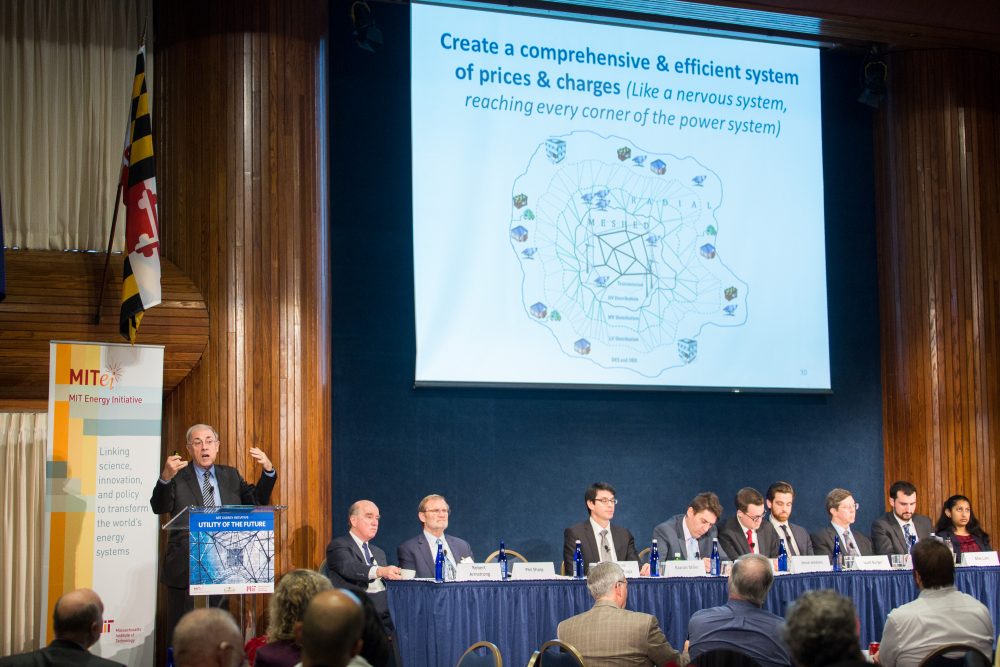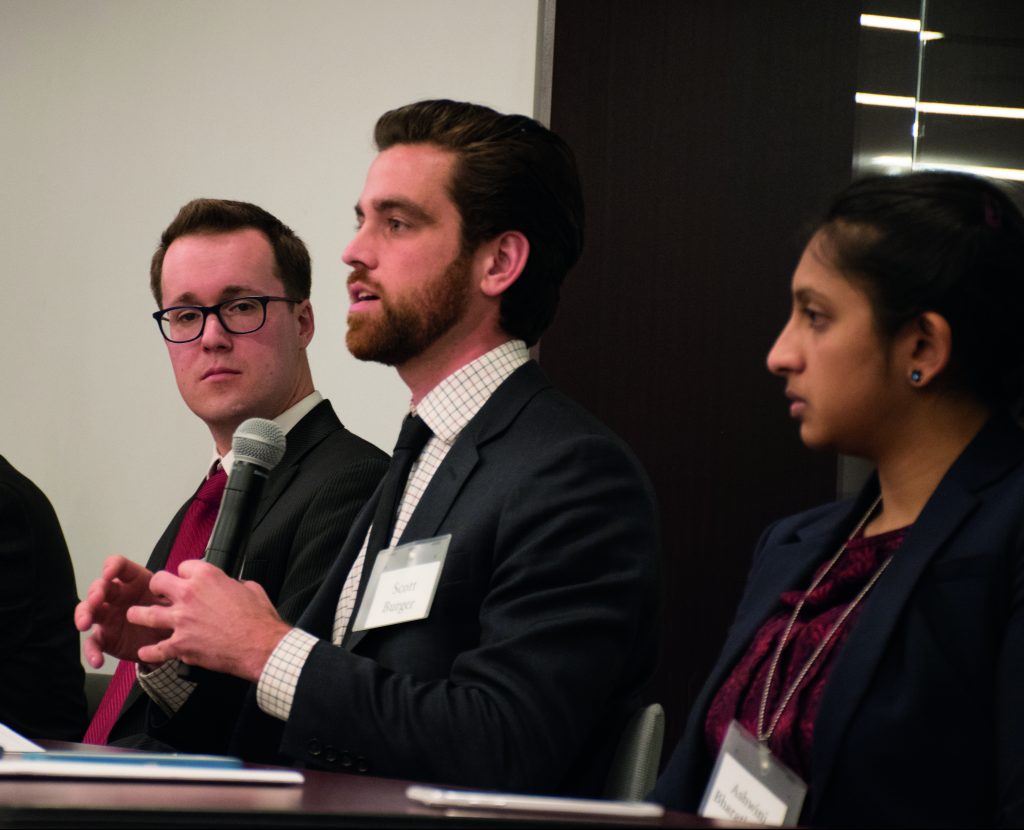
For graduate students on the Utility of the Future study’s research team, the experience of researching and writing the MIT Energy Initiative (MITEI) report proved an extraordinary opportunity— both to learn the inner workings of the power sector and to collaborate with an impressive team of experts.
“Working on the study gave me a chance to really dive in-depth into the rapidly evolving challenges in the electricity sector and as a result come out on the cutting edge of understanding those challenges and being able to speak about them in an academic and in a policymaking context,” says Jesse Jenkins, a PhD candidate in MIT’s Institute for Data, Systems, and Society (IDSS) and a 2012–2013 Enel-MIT Energy Fellow who served as a researcher on the Utility of the Future (UoF) project.
Jenkins says he particularly enjoyed working with the UoF team, which included both faculty members and researchers from MIT and the Institute for Research in Technology at Comillas Pontifical University (IIT-Comillas) in Spain as well as an advisory committee of top experts from industry and government. “It was a great chance to work with a really interesting team of people with expertise from all over the world,” he says. “I think it definitely accelerated our learning process.”
Ignacio Pérez-Arriaga, a visiting professor from IIT-Comillas who served as lead principal investigator for the nearly three-year study, says the graduate students’ work was central to Utility of the Future, MITEI’s 384-page final report on the UoF study and a guide to the factors driving change in power systems worldwide.
“The guidance of the faculty in setting priorities, allocating human resources to specific topics, and guiding the herd of cats toward a common objective was of essence, but most of the credit for the value of the study must be given to a group of extraordinarily talented and dedicated students,” he says.

From left: MIT graduate students Jesse Jenkins, Scott Burger, and Ashwini Bharatkumar participate in a panel at a special Utility of the Future event for MIT alumni during the study’s launch in Washington, DC. Photo: Francesca McCaffrey, MITEI
Among those students was Ignacio Herrero, a PhD candidate at IIT-Comillas who researched the design of wholesale markets for the report. Trained as an electrical engineer, Herrero says working on the UoF taught him the importance of policymaking. “You learn it’s not just about getting the numbers right, and it’s not even about developing technology. You need the right regulations in place if any change is to happen,” he says.
Another student researcher, Nora Xu SM ’15, says she came to MIT with a background in wholesale electricity markets but found that working on the UoF study broadened her knowledge base. “I learned a lot about commercial buildings and their operation, and I learned a lot more about what the big issues are on the distribution side [of the power sector],” Xu says.
Xu, a 2013–2014 Eni-MIT Energy Fellow and 2014–2016 Shell-MIT Energy Fellow, contributed research on thermal modeling for multizoned commercial buildings to the UoF study. As was the case for many of the students involved, Xu used the same research for her master’s thesis.
Jenkins, for example, contributed his master’s thesis work on the regulation of distribution utilities and also wrote about the value of distributed energy resources using research central to his PhD dissertation.
Now, Jenkins says, he expects his UoF experience will help him in his quest for a tenure-track academic job. “[The UoF project has] deepened my expertise and given me an ongoing research agenda to pursue and hopefully positioned me as an expert on these topics,” he says.
Ranaan Miller, executive director of the UoF study, says the project provided all the students involved with valuable experience. “This was a multifaceted, very extensive project. The students learned a lot and matured a lot. For example, they learned how to deal with ambiguity and to deliver on a tight schedule,” he says.
In addition to researching and writing on their own assigned topics, the students helped review and edit the full report. They also had the chance to present their work to industry experts and regulators, who provided feedback. “Having those inputs was very important,” Herrero says. “That’s something you don’t typically get as a PhD student.”
Indeed, Scott Burger, another PhD candidate in IDSS, a 2014–2016 Shell-MIT Energy Fellow, and a UoF researcher, says a major benefit of joining the UoF project was working with “an amazing group of researchers and advisors.”
Burger helped develop one of the study’s core modeling tools—DR DRE, or Demand Response and Distributed Resources Economics—which the researchers used to examine such questions as: Under what sets of service pricing structures or technology parameters do distributed energy resources complement and compete with each other? “I learned an immense amount about power systems regulation and economics, modeling, and engineering,” he says.
Yet it was working with the UoF team that was the highlight for Burger. “Because of [the UoF leaders’] efforts in team building, we now have a solid foundation of researchers that can carry the torch with ongoing work related to power systems here at MIT,” he says.
Xu similarly praised the faculty members involved. “Even if I was struggling with some of the research on a day-to-day basis, being able to get advice from them and being able to discuss things with them was really encouraging. They’re a great example of professors that don’t just want to do good work but also care about their students learning and progressing as researchers,” she says.
The UoF study’s leaders were equally complimentary of the team’s graduate students. Miller says they were “pretty exceptional—in terms of leadership, framing of issues, the quality of the writing, and clarity of thinking.” He adds, “It was a creative, talented, highly motivated group of students that was dedicated to this project and contributed their best, and it really showed.”
This article appears in the Spring 2017 issue of Energy Futures.